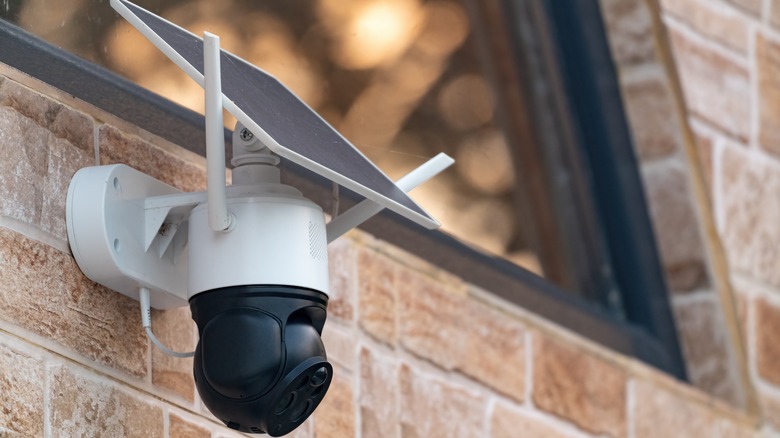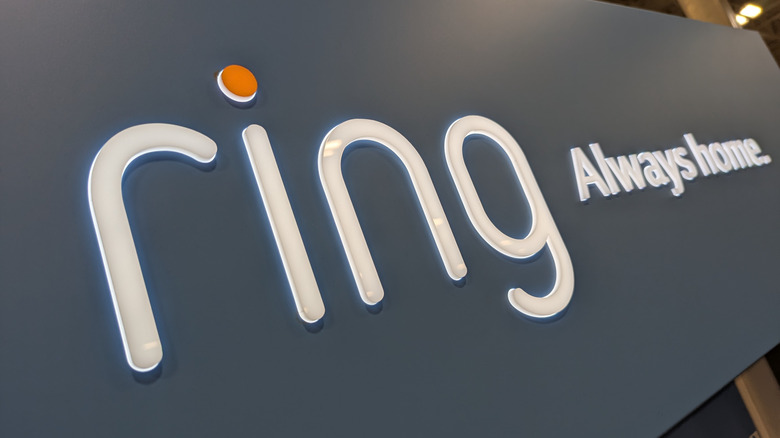Everything To Know About Solar-Powered Security Cameras
Snatching a bicycle from someone's yard or a package off the front porch is harder now than ever before. It's estimated that more than 50% of American homes have at least one security camera, with many hoping to deter just such crimes. Home security or surveillance cameras are readily available for anyone willing to make the investment. From the Google Nest and Amazon Ring to the new Arlo Pro 6, buyers have plenty of choices. There's a lot to consider, including picture clarity and cost, but you should also put some thought into how the camera is powered. Some require batteries that need to be recharged and others to be plugged into an electrical outlet, but many offer a solar-powered option.
Solar-powered security cameras typically use solar panels that are either integrated or attached as an optional add-on. Just like the solar panel systems that you can add to your roof, these cameras have integrated inverters that convert DC power from the solar panel into AC power to power the camera. Power is also stored in rechargeable batteries to keep the cameras on even when it's dark outside.
You then connect the camera to your home Wi-Fi for a truly wireless experience. It's a pretty simple system, but you'll want to do some research before investing to learn about key features, subscription services, weatherproofing, battery capacity, and more. You can purchase solar-powered cameras for under $100, but expect to pay several hundred for the more popular and well-ranked models.
What to look for in a solar-powered camera
Solar-powered security cameras are easy to install because they don't need to be wired into your home's electrical system. They're also easier to maintain than battery-operated cameras. You won't need to remove the battery to recharge it, though you will need to occasionally clean the solar panel and the camera lens. Because the camera is storing energy, it should continue to work even during power outages, and many are made to withstand severe weather, including extreme heat and cold. Be sure to consider the wattage of the solar panel when you're shopping. A higher wattage will charge the battery faster.
When you're shopping for a solar camera, consider its field of view — will it encompass the area that you're trying to secure — and if you'd like it to activate when it senses motion. Will it integrate with your smartphone, providing easy access to footage and alerts? Some security cameras will talk to your smart home platform, like Amazon Alexa, allowing you to view the footage on your smart TV or other smart displays. Just remember, you may be required to subscribe to a monthly or annual subscription, especially if you want to store your video logs, but some cameras work without one.
You will probably want to purchase a camera that offers high-definition resolution and night vision. Additionally, some higher-end cameras have features such as two-way audio, geo fencing, and built-in floodlights. There are several major home security brands to consider, though some rank better than others. SafeHome.org ranked the Google Nest, Amazon Ring, and Arlo among the best solar-powered options.

